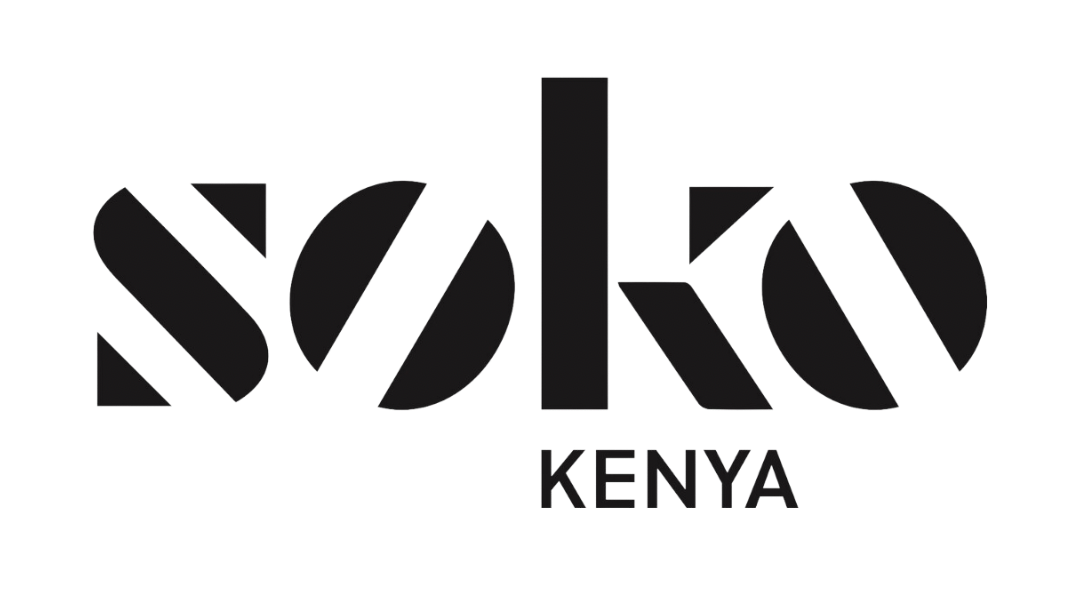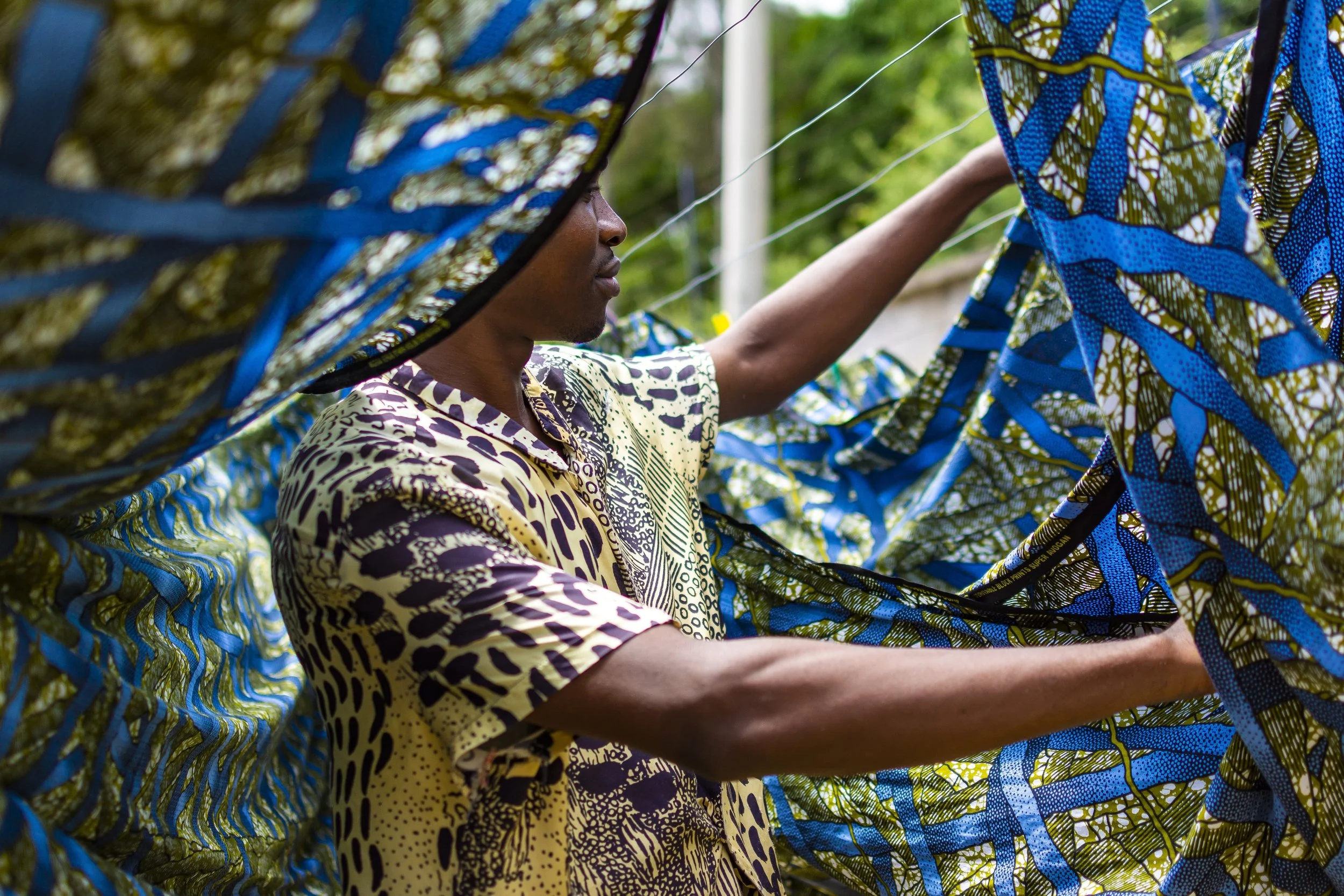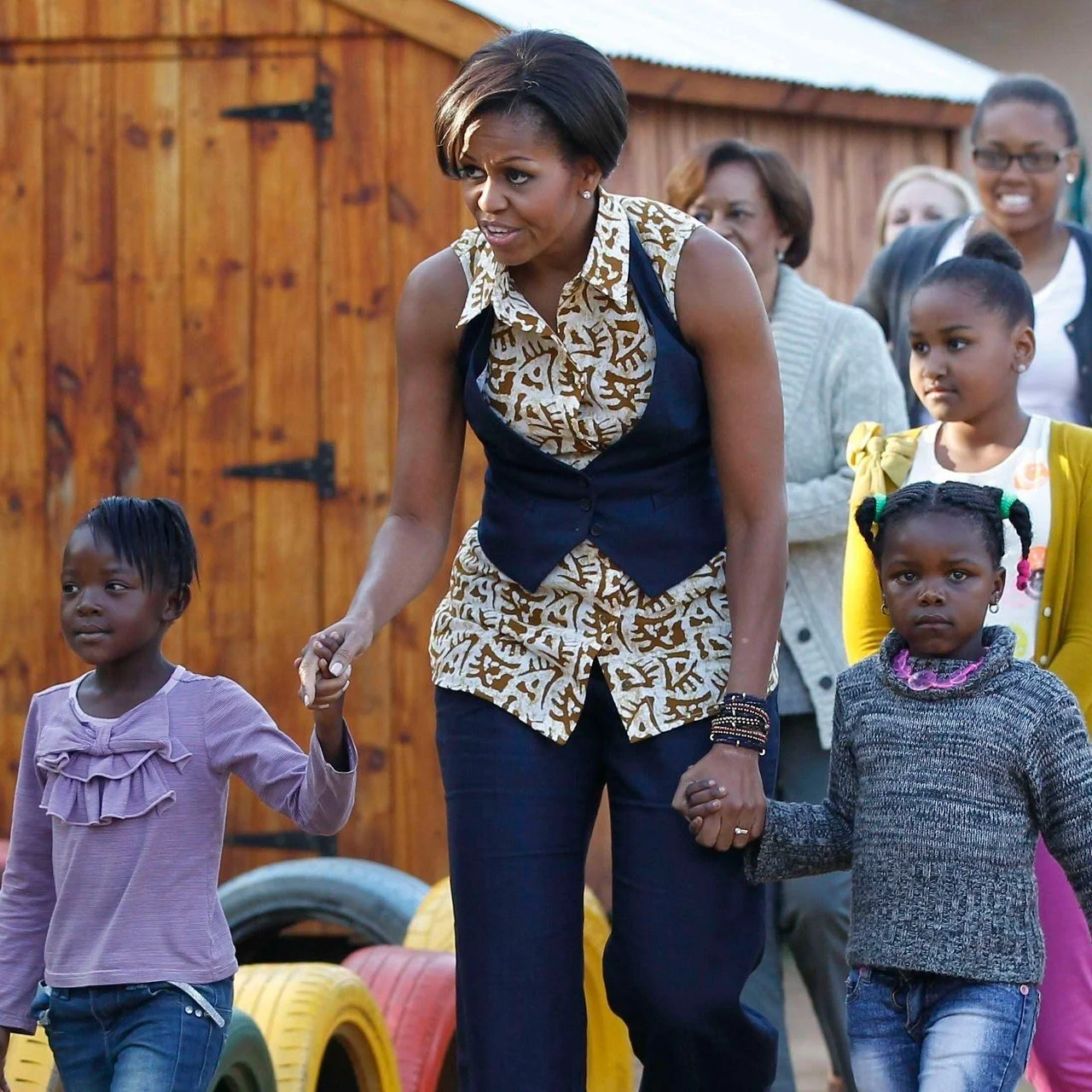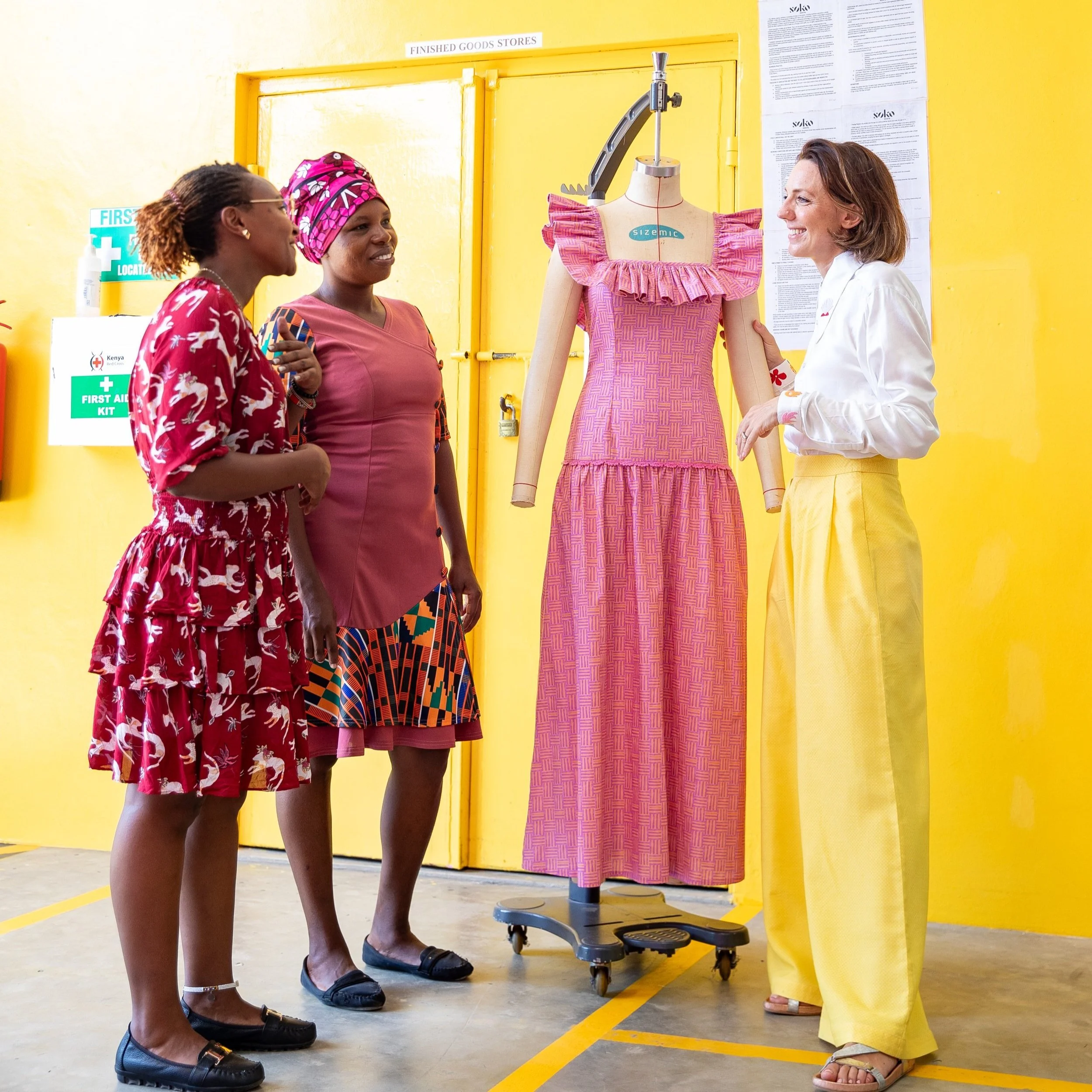SOKO Kenya founder Jo Maiden on Purpose, People, and Lasting Impact
We sat down with our founder, Jo Maiden, to explore the story behind SOKO Kenya — how it all began, what keeps her going, and why building a factory that puts people first still matters. As a female entrepreneur breaking ground in ethical manufacturing, Jo shares the brave choices, small steps, and big vision that shaped SOKO Kenya into what it is today.
What first sparked your interest in using fashion as a force for change?
From a young age, I was drawn to the intersection of fashion and social impact. I studied development economics and later fashion and textiles, always questioning whether fashion could be a vehicle for poverty reduction. After working in the fashion industry in London, I travelled to Kenya with the Ethical Fashion Forum, and something just clicked. The vibrancy, the people, the energy. I fell in love with it. That trip planted a seed, and in 2009, I moved to Kenya to set up a clothing factory that prioritised people and the planet.
Why did you choose Kenya as the place to build that vision?
That first visit opened my eyes to both the skill and the opportunity here. At the time, there weren’t many options for brands looking to manufacture responsibly at scale, so the goal was to build something different. Kenya felt full of possibility, and I knew this was where I wanted to build something that could have a real, lasting impact.
What does it mean to use business as a force for good at SOKO Kenya?
It’s about more than just profit; it’s about creating real impact. Being an ethical employer goes beyond paying fair wages. It means embedding care into the culture of a business, building systems that prioritise people, and challenging the idea that ethics and growth can’t go hand in hand. That looks like paying living wages, private pensions, supporting female leadership, offering training through our in-house programmes and community trust, and through our charity Kujuwa Initiative, tackling period poverty and reproductive health education. When values drive a business, success isn’t compromised; it’s redefined. It’s not always easy, but we’ve seen what’s possible when people come first: a future for fashion grounded in equity, inclusion, and long-term thinking.
Women make up most of the fashion workforce, but often don’t hold leadership roles. How is it different at SOKO Kenya?
At SOKO Kenya, women aren’t just employees, they’re the leaders and decision-makers. About 80% of our team and all of our senior leadership are women. But it’s really about more than just the numbers. We focus on creating real opportunities for women to grow, take on leadership roles, and shape the future of the business.
It’s important that women here don’t just do the work; they build meaningful careers, support and mentor others, and drive real change. We want to be part of a new story in fashion where equity isn’t just an idea, but a reality that benefits everyone.
What has growth taught you about scaling ethically?
Sustainability is woven into everything we do, and putting people at the heart is in our DNA. What scaling has taught us is that growth doesn’t have to come at the expense of ethics or the environment. We've remained intentional, creating safe, dignified jobs and investing in the long-term well-being of our team. We've learned that the more you grow, the more important it is to stay rooted in your values. It's your people who carry your mission forward, and scaling sustainably means thinking long-term, listening closely, and building systems that work for both people and planet.
How do partnerships with brands work at SOKO Kenya? What makes them different from typical manufacturing relationships?
At SOKO Kenya, we build real partnerships rooted in shared values, not just transactional deals. It’s about collaboration, ownership, and care. We believe in opening our doors, inviting partners to visit the factory, meet the team, and share a meal with us. That openness builds trust and leads to real impact. Many of the brands we work with go beyond production to support our community trust initiatives, like training and skills development for our team.
How do you keep improving your ethical standards over time?
We constantly ask ourselves, “How can we be better ethical employers? What more can we do?” For example, we recognised that paying living wages was not enough, so we introduced private pension schemes for all employees. I didn’t want our commitment to end at the factory gate. It was about supporting long-term financial security, making sure that retirement doesn’t mean falling back into poverty. It’s an ongoing journey, and we don’t just tick the box and sit back. It’s about shared responsibility and building a system that benefits everyone.
Are there moments you’re especially proud of?
Michelle Obama wearing one of our garments was surreal and exciting and a real pinch-me moment. More recently, I was honoured as First Runner-Up for the Women in Manufacturing ESG Warrior Award at the Kenya Association of Manufacturers. We’ve quietly been doing our thing for 16 years in rural Kenya, so to be recognised on that kind of platform was incredibly meaningful.
But the most meaningful moments are usually the quieter ones: watching our team grow in confidence, seeing someone complete our training programme and step into full-time work, or knowing that the systems we’ve built are genuinely improving lives.
What’s your vision for the future of SOKO Kenya?
We’re proving that fashion can be a force for good. The industry is shifting, brands and consumers are demanding greater transparency, and ethical production is no longer a niche concept. Our goal is to continue leading by example, showing that responsibility and success can go hand in hand.
How do you see the relationship between ethics and growth?
Being an ethical employer is more than paying fair wages. It’s about embedding care into the culture of a business. It’s building systems that prioritise people, that create opportunity, and that challenge the assumption that ethics and growth can’t coexist. This is what we’ve learned at SOKO Kenya: when values drive a business, success isn’t compromised, it’s redefined. It’s not just about profitability, but about impact, and creating a system where people thrive alongside growth.
Hear Jo Maiden talk with Terser Terser Adamu on the Unlocking Africa Podcast about how SOKO Kenya began, the challenges we’ve faced, and what it means to build a responsible fashion business.











